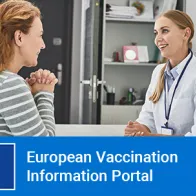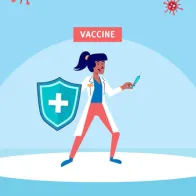Questions and answers on COVID-19: Vaccines
Please note that the information provided on this page was valid as of 13 March 2024.
1. Which COVID-19 vaccines are available in the EU?
Several COVID-19 vaccines have been authorised for use in the EU since the start of the vaccination programme. After the first available vaccines were authorised for use, further authorisations were issued for other vaccines, including for some updated vaccines that were adapted to protect against newer circulating variants of the severe acute respiratory syndrome coronavirus 2 (SARS-CoV-2).
Some of the first adapted vaccines targeted both the original virus strain and newer variants (Omicron), hence they were called bivalent vaccines. More recently, since the summer of 2023, adapted vaccines were authorised that protect against a strain belonging to the XBB family of Omicron subvariants, and therefore are called monovalent adapted vaccines.
The authorised COVID-19 vaccines are based on different technologies, also referred to as platforms. The technologies include mRNA, adenoviral vector, protein-based and inactivated vaccines. A description of these platforms and how the vaccines work is available on the European Medicines Agency (EMA)’s website. A full list of the vaccines against COVID-19 authorised in the EU is available on the EMA website.
Information on how different vaccine technologies work is also available on the European Vaccination Information Portal (EVIP).
2. Are COVID-19 vaccines safe?
COVID-19 vaccines are safe. More than 900 million doses have been administered in the EU/EEA as of October 2023. Globally, the vaccines have been used in hundreds of millions of people.
COVID-19 vaccines are developed following the same legal requirements for quality, safety, and efficacy as for all other vaccines. Like all vaccines, the effects of COVID-19 vaccines are first tested in the laboratory, including in animals, and then in human volunteers. The European Medicines Agency (EMA) evaluates COVID-19 vaccines against the same high standards as with all other vaccines before they are released for use. More information on the development of COVID-19 vaccines is available in the European Vaccination Information Portal: COVID-19.
Once the vaccines are in use, national authorities and EMA continually monitor their use for any side effects that may occur in people who have received the vaccine. As with any medicine, some people may experience side effects from a vaccine, but these are usually mild and short-lived.
The safety of COVID-19 vaccines was highlighted in a statement published in July 2023 by the International Coalition of Medicines Regulatory Authorities (ICMRA). This statement was endorsed by EMA: Global regulators confirm good safety profile of COVID-19 vaccines | European Medicines Agency. It concludes that evidence from more than 13 billion doses of vaccines administered worldwide to protect people from severe outcomes of COVID-19, shows that the vaccines have a very good safety profile in all age groups, including children and people with underlying medical conditions, immunocompromised patients and pregnant women.
The ICMRA statement of July 2023 informs that, while most side effects of COVID-19 vaccines are mild and temporary, safety monitoring systems have identified some very rare (occurring in less than 1 in 10,000 people) but serious side effects. The statement highlights that medicines regulators around the world have put in place measures to reduce the risk of harm from these side effects.
3. Are COVID-19 vaccines effective?
COVID-19 vaccines authorised for use in the EU/EEA have been very effective at preventing severe disease, hospitalisation, and death. This is also valid for infections caused by more recent variants of the SARS-CoV-2, such as Omicron and its sub-group of XBB strains.
Unvaccinated people remain at a much higher risk of falling severely ill with COVID-19, compared to people who have been vaccinated.
Studies done on vaccine effectiveness show that protection declines over time and in the context of new SARS-CoV variants emerging. There is however uncertainty about the timing and magnitude of this waning immunity, and the specific contribution that the passage of time and emergence of new variants has on this.
Therefore, people at higher risk of severe disease should continue to get vaccinated as per national recommendations, to restore protection and prevent severe disease.
As the virus SARS-CoV-2 continues to evolve, the original vaccines were being adapted to ensure optimal protection against COVID-19. Variant-adapted vaccines started to be authorised in September 2022 for use in the EU as boosters. Some of the first adapted vaccines targeted both the original virus strain and newer variants (Omicron), hence they were called bivalent vaccines. More recently, in 2023, adapted vaccines were authorised that protect against a newer strain belonging to the XBB family of Omicron subvariants, and therefore are called monovalent adapted vaccines.
The adapted vaccines expand the immunity against variants of concern, especially Omicron and related sub-lineages.
4. What are ECDC’s recommendations regarding COVID-19 vaccination?
ECDC issued on 7 September 2023 public health considerations for the autumn vaccination campaigns. The ECDC was observing signals of an increase in SARS-CoV-2 transmission from previously very low levels in the EU/EEA. It also cautioned that the virus remains capable of acquiring mutations that facilitate its continued circulation at unpredictable times throughout the year.
In this context, ECDC highlighted that vaccination efforts should focus on protecting people at risk of progression to severe disease, e.g. people aged over 60 years and other vulnerable individuals irrespective of age (such as people with underlying comorbidities or the immunocompromised).
ECDC has also highlighted that vaccination of healthcare workers should be considered, in line with national recommendations. Healthcare workers can run a higher risk of exposure to new waves of SARS-CoV-2. In addition, they play a key role in the functioning of healthcare systems.
National authorities in the EU/EEA make the final decision on who should be vaccinated and when in their countries. For this, they consider factors such as the spread of infection, the impact of COVID-19 in different populations, and the emergence of new variants.
In national recommendations for COVID-19 autumn 2023 vaccination campaigns, the age cut-offs indicated can differ between countries. In some countries, vaccination was recommended to the same age group as the annual influenza vaccination. Other high-risk groups recommended vaccination included persons aged six months and older with underlying diseases (i.e. chronic respiratory, cardiovascular, liver and kidney disease, diabetes, obesity, chronic neurological disease, immunosuppression) and residents in long-term care facilities.
5.Can vaccinated individuals still get COVID-19 disease?
People who are vaccinated can still become infected with SARS-CoV-2 and infect others, although this occurs less often than in people who are unvaccinated. People who have received one or more doses of COVID-19 vaccines and experienced at least one SARS-CoV-2 infection before or after the initiation of vaccination have a level of immune protection. This is referred to as ‘hybrid immunity’. Vaccinated people who still catch the virus are far less likely to fall severely ill, to be admitted to hospital, or to die than unvaccinated people.
Protection conferred by vaccination can decrease over time as new SARS-CoV-2 variants emerge. Therefore, countries continue to issue vaccine recommendations, in particular for population groups at higher risk of severe disease.
Given the risk of infection, vaccinated individuals should continue to follow national recommendations on public health measures to reduce transmission of the virus, such as appropriate hand hygiene, respiratory etiquette, adequate ventilation and the use of face masks where required. Measures to limit the transmission of SARS-CoV-2 are especially important in settings with people at high risk of severe disease and hospitalisation, such as in long-term care facilities.
6. Why is vaccination still needed if the public health emergency is over?
In May 2023 the World Health Organisation (WHO) declared that COVID-19 no longer constitutes a public health emergency of international concern (PHEIC). However, the disease continues to be an ongoing health issue and WHO called for sustained efforts to increase COVID-19 vaccination coverage for all people in the high-priority groups.
With the ongoing circulation of SARS-CoV-2, older people and those with underlying health conditions continue to be at higher risk of severe outcomes if they get infected. Also, COVID-19 continues to place a burden on healthcare systems. Therefore, vaccination of those at highest risk of developing severe disease continues to be important.
7. Is COVID-19 vaccination still necessary, even after getting infected with the virus and recovering?
People who have recovered from a prior infection are less likely to become infected with SARS-CoV-2 and have severe outcomes from COVID-19 (hospitalisation, ICU admission, and death) when compared with people who have not been infected. This will also depend on the time of the last infection. However, vaccination enhances protection.
Studies show that reinfections with SARS-CoV-2 occur even in people who have had COVID-19.
Evidence shows that vaccination after infection strengthens protection and further reduces the risk of reinfection. Therefore, COVID-19 vaccination is generally recommended for the eligible target population, including those who have recovered from the disease. Given the waning of immunity over time, people at higher risk of severe disease should continue to get vaccinated periodically and as per national recommendations, to maintain protection.
8. Should adolescents and/or younger age groups be vaccinated against COVID-19?
Children and adolescents who have underlying conditions that put them at higher risk of severe COVID-19 should be considered a priority group for vaccination against COVID-19, as in other age groups. This is to ensure they are protected against severe disease and hospitalisation.
Children and adolescents with no known risk factors are also susceptible to severe disease and hospitalisation, even though COVID-19 infections in these age groups are generally mild and hospitalisation rates remain at much lower levels than in adults.
The decision of whether to include younger age groups in the COVID-19 vaccination programme is taken at the national level. More information on the strategies of the countries regarding vaccination of younger age groups is available (as per information published on 3 March 2023) in the Overview of the implementation of COVID-19 vaccination strategies and deployment plans in the EU/EEA (europa.eu).
As of 20 October 2022, the use of the COVID-19 vaccines Comirnaty and Spikevax is authorised in the EU/EEA for use in children aged six months and older.






